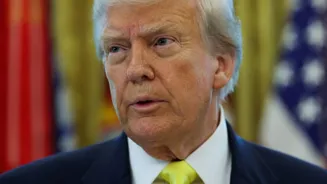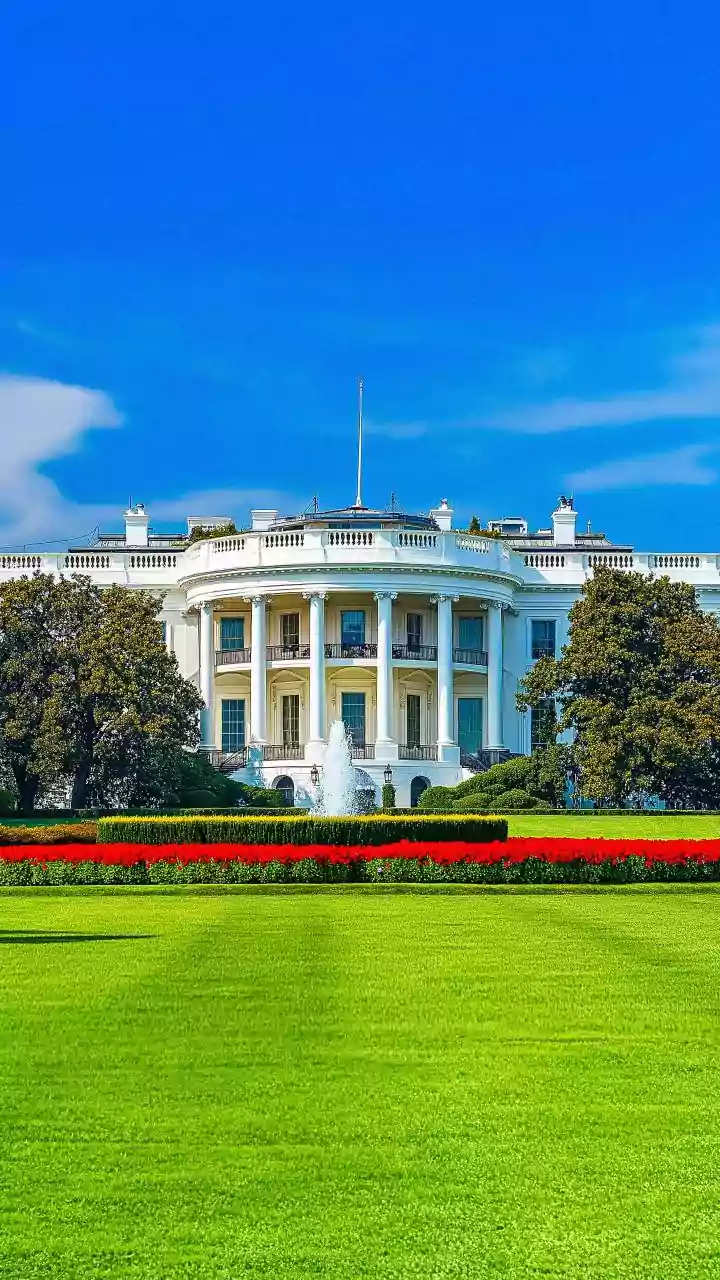When great powers falter, the end rarely arrives in a single dramatic collapse. More often, decline begins subtly, under the leadership of rulers whose policies, decisions, and personal styles chip away
at the very foundations that made their realms dominant.
History is littered with examples – from Rome and the Ottomans to the Mughals and even the British – where the seeds of decay were sown not at the empire’s weakest hour, but at the peak or shortly after, when complacency, overreach, and hubris replaced steady governance. Watching Donald Trump’s second term unfold in Washington, it is difficult to escape the sense that we have entered a similar inflection point for the United States.
The pattern in each decline follows an almost predictable path. Institutions eroded as rulers centralised power and sidelined competent administrators. Corruption and nepotism flourished. Societies fractured under divisive policies. Economies faltered from overextension, fiscal mismanagement, or both. Alliances frayed, rivals grew bolder, and legitimacy – the belief that the system was worth preserving – began to crumble. Once these dynamics took hold, the downward momentum was hard to stop.
Donald Trump’s second term exhibits more than a passing resemblance to all of these historical moments. From the outset in January 2025, Trump has governed with an openly personalist style, casting himself as the singular saviour of America against a litany of “corrupt” or “traitorous” enemies. Independent regulatory agencies have been stripped of autonomy and placed under direct White House supervision, with loyal political officers installed inside.
Career civil servants have been purged in favour of ideological allies, echoing the late Ottoman pattern of replacing seasoned administrators with sycophants. Agencies like the Bureau of Labour Statistics have been gutted, international relationships built over decades dismantled overnight, and thousands of experts left in limbo, the administrative equivalent of tearing down your own city walls. The ‘bending-of-the-knee’ and offering of ‘personalised tribute’ by Tim Cook or the ‘protection money’ by Nvidia are not just jarring sights emerging from a first world country but indicators of the process where personal capture of institutional processes often heralds societal fracture.
The Justice Department and IRS have been deployed against political adversaries, including universities and law firms tied to past investigations of Trump. Even the visa status of international students has been weaponized in campus protest crackdowns. This is not the neutral, rules-based state envisioned by the American founders; it is governance by vendetta, a hallmark of declining regimes where loyalty to the ruler outweighs loyalty to the law. Undoubtedly the greatest strength of Pax Americana – its universities – are also under direct Trump attack. That many of these universities had decidedly turned hard Left in the preceding years is no excuse in the way Trump is systematically going about dismantling them.
Domestically, Trump’s agenda has intensified America’s internal divisions. History curricula are being retooled to fit a MAGA supremacist version, while immigrants, urban “crime-ridden” areas, and political opponents are vilified. The parallels to Aurangzeb’s Mughal India are striking: an ideologically driven leader alienating large constituencies to please a devoted base, stoking resentment that may outlast his rule. Empires that turn against their own pluralism rarely hold together indefinitely.
In foreign policy, Trump has accelerated a retreat from the very alliances that underpinned U.S. global power for three-quarters of a century. At NATO summits, he has openly questioned the mutual defence pact and asserted that American protection is conditional on allies’ deference. Trump has floated seizing Greenland from Denmark and even “taking over” the Panama Canal, and annexing Canada as the 51st state of USA.
Economically, the United States under Trump is embracing policies that will, in time, weaken the fiscal base of its power. Across-the-board tariff hikes, mostly on whim and without any economic rationale, have triggered retaliation and realignment of world economic order. Trump may not realise it yet but the biggest casualty of his tariff wars will not be the countries he is targeting but his own citizens and the consuming middle classes of America.
Massive tax cut extensions, unfunded, are projected to add trillions to the national debt. The Ottomans debased their coinage; the late Romans paid their troops with increasingly worthless currency. Fiscal imprudence has always been a silent accelerant of imperial decline, because economic strength underwrites both domestic stability and international clout. A heavily indebted America facing rising interest costs may find its ability to project power, militarily or diplomatically, sharply curtailed.
Perhaps most striking is the erosion of legitimacy. Trump has repeatedly cast doubt on the integrity of U.S. elections, suggested he might not accept results he dislikes, and pardoned those who violently attempted to overturn the 2020 outcome. In doing so, he signals that the rules of the political game are subordinate to his personal will. History is replete with examples of what follows: the late Roman Republic’s descent into civil war when electoral outcomes were no longer respected; Mughal succession disputes that invited foreign invasion; the Soviet collapse when Gorbachev’s unilateral actions undermined the edifice of the system built seven decades ago. When faith in the system dies, it is often the beginning of the end.
But what has eroded the legitimacy of the USA the most has been the conduct of Trump’s foreign policy. Take for example Trump’s actions on India. Owing to the meddling of USA in Kashmir in the 1950s and beyond, the Indian system harbored an institutionalised distrust of the United States. The actions of the Nixon government in 1971 left a scar that has still not been forgotten by the Indian establishment.
Despite the extensive people-to-people contact, the decision-making system of India never trusted the United States as a reliable partner. Since early 2000, Bill Clinton, George Bush, and Barack Obama administrations spent considerable political capital to repair this trust. Under Prime Minister Modi, more than a decade has been spent by India as well to build public and thereby institutional support to look at USA as a plausible and reliable partner. But, in just over six months Trump has proved every USA sceptic in Indian permanent decision-making apparatus right.
Such is the cataclysmic effect of Trump’s style of functioning that he has facilitated a lunatic Pakistani General to deliver nuclear Armageddon threats against India from USA soil. What legitimacy will the USA ever have again against proliferation of nuclear weapons when USA itself is rolling the red carpet to a terrorist state to issue nuclear threats?
Which Indian government will again trust the USA, especially in the age of social media where every act of betrayal or stab-in-the-back will be digitised in permanent memory of the people? Why just India, every other country with any iota of self-respect will draw appropriate lessons.
The irony is that in the metric of ‘Truth Social’ cycle, Trump may think that he is winning. Parallels from history should warn him that events may and will soon overtake him and more consequently, the United States itself.
The counter arguments are of course strong. The United States is not an ancient monarchy, and it remains far wealthier, more technologically advanced, and more institutionally complex than most empires at the onset of decline. There are countervailing forces: an active civil society, still-independent courts in many cases, and state governments willing to resist federal overreach. American decline, if it comes, will not mirror Rome’s sack by barbarians or the Union Jack’s quiet lowering over distant colonies. But the warning signs of institutional corrosion, societal fracture, fiscal recklessness, and strategic withdrawal are there for anyone willing to see them.
History’s lesson is sobering: decline is not inevitable, but it becomes more likely when leaders treat institutions as disposable, unity as expendable, and the future as collateral for personal ambition. Empires rarely fall by force alone.
Under Trump, America risks collapsing from the inside out, undone by one man’s vanity, vendetta, and voracious need for control.
The writer is the founding CEO of BlueKraft Digital Foundation. Views expressed in the above piece are personal and solely that of the author. They do not necessarily reflect News18’s views.





















